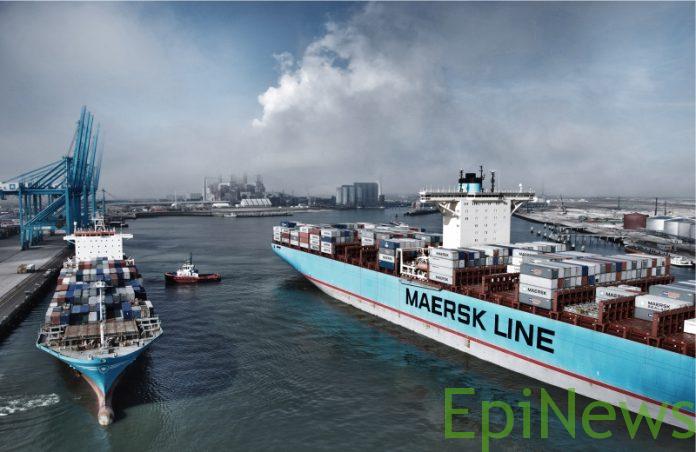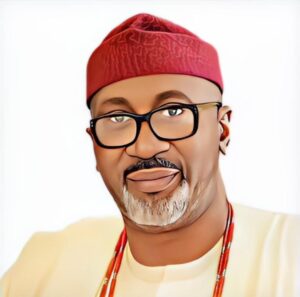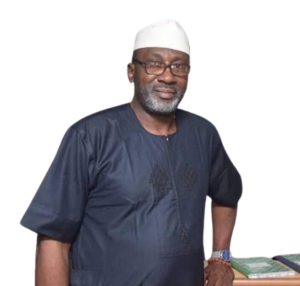AP Moeller-Maersk, one of largest ship owning companies, announced recently that it has invested over $1 billion in Ghana for the acquisition of ultra modern cranes and framework for their ports. Under the investment plan, seven ship-to-shore and ultra-modern gantry cranes have already arrived the main Ghanaian port of Tema and are set for inauguration in June. For a country with only two ports in Tema and Sekondi-Takoradi, it is a remarkable achievement by the Ghana Ports and Harbours Authority (GPHA).
It is the product of a road map charted by the Ghanaian government as it seems to upstage Nigeria which has failed to leverage on it’s status as the dominant port of destination in West and Central Africa.
A recent report revealed that Ghana, is emerging as a maritime hub for West Africa. In effect, major shipping companies will use port facilities in that country as the primary destination for goods destined for countries in the subregion from where they will be transshipped to their final destinations.
The key to Ghana’s emerging status is the introduction in May 2017 of the paperless clearing system which requires exporters and importers to provide detailed and timely information about their shipment in advance on a global online platform, thus modernising operations to facilitate the movement of legitimate trade and the fast commencement of review processes well in advance in line with international best practices.
Under the system, Ghana has been able to meet its target of ensuring that goods are cleared within 24 hours of arrival and a maximum of three days.
In a February 21 State of the Nation address, President, Nana Akuffo-Addo, restated the importance of Ghana’s ports as national assets.
He had said the introduction of paperless operations aimed at aiding the clearance of goods within a day to three, was yielding results to the commendation of importers and stakeholders.
The President further articulated the announcement of other reforms to enhance the competitive position of Ghana’s ports and its impact on the cost of living in the country.
Going forward, the President expressed the preparedness of government to put in place initiatives – modernising Ghana’s ports in terms of infrastructure and ICT, to position them as the preferred maritime trade hubs of business in West Africa.
That Nigerian ports will soon be playing second fiddle to their Ghanaian counterparts sums up the pathetic state of shipping services in a country that accounts for up to 60 percent of the non-oil goods shipped into the West and Central African subregion. Nigeria has the highest number of port complexes, more than seven of them, spread across its 853 kilometres coastline. Rather than leverage on its endowment as the destination for most goods and the largest trading partner for most developed economies, Nigerian ports have been mired in inconsistency, policy shifts and absence of political will to effect reforms that would smoothen the cargo delivery process.
Despite having the highest number of ports, only the ones in Lagos, Nigeria’s commercial hub, are viable, handling more than 70 percent of all non-oil imports and exports. Even then, Lagos ports have been left to root, especially in the area of access roads to the facilities. The two major arteries to the ports have completely collapsed resulting in the subsisting situation where it takes trucks up to three weeks to gain entry into the terminals to evacuate goods. The clearing process is still convoluted with extreme documentation and a legion of security agencies with ill-defined functions that only serve to further complicate the system.
READ ALSO Reported Corruption Incidents Down Ninety Percent in Argentina
The federal government has toyed with several programmes to ease business transactions at the ports, including the reduction in the number of agencies authorised to operate within the ports. Although the number of security organisations was actually reduced, most of those barred have found their way back for reasons that have absolutely nothing to do with enhancing the cargo delivery process. The latest venture – concessioning of the terminals to private operators – has had limited impact on quality of port services and efficiency in cargo delivery.
The Lagos axis of Nigeria’s port infrastructure has become a laughing stock within the international shipping community as it takes a minimum of three weeks before goods are cleared. This time frame does not include the time taken to navigate the horrendous access roads.
Through the commitment of its leaders to genuine reforms over the years, Ghana has grown in stature as a country with greater economic transparency and political stability than many of its neighbors, as well as having progressive approach to stimulating growth, investment and opportunity. Its leaders have built a reliable business infrastructure and investor-friendly climate that makes it easier to do business in that country than in many emerging economies. Ghana is also seen as safe, secure and does not suffer from significant security threats.
It is baffling that despite the congestion in Lagos ports and the poor state of their infrastructure, the federal government has failed to take concerted measures to open up the ports in other parts of the country to enhanced shipping traffic. The major constraint of the Warri, Calabar, Port Harcourt, Koko and Sapele ports in the eastern and Delta axis is the shallow draught of the channels leading to the facilities. The major solution is capital dredging to return the ports to their advertised draught at the time of their construction. Due to the capital intensive nature of such a venture, only the federal government has the financial muscle to undertake it.
READ ALSO UK Ship Register Signs Its First Unmanned Vessel
The current state and status of Nigerian ports are only acceptable in failing states. Despite her monumental challenges, Nigeria is not yet one. What it lacks is a visionary leadership that can harness her natural endowments to chart a course for wealth creation. The federal government will have to initiate measures to fix the broken state of the ports and truly make them welcoming to investors. It will be tragic if Nigerian shippers eventually have to receive their goods through Ghana despite Nigeria being the dominant destination for cargoes in the subregion.






